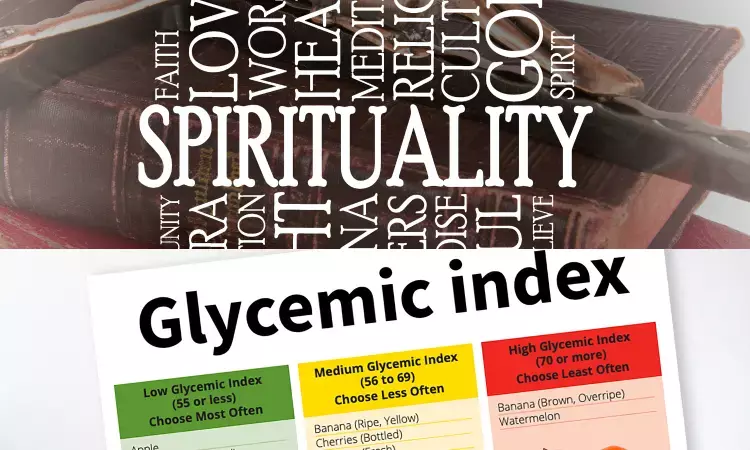- Home
- Medical news & Guidelines
- Anesthesiology
- Cardiology and CTVS
- Critical Care
- Dentistry
- Dermatology
- Diabetes and Endocrinology
- ENT
- Gastroenterology
- Medicine
- Nephrology
- Neurology
- Obstretics-Gynaecology
- Oncology
- Ophthalmology
- Orthopaedics
- Pediatrics-Neonatology
- Psychiatry
- Pulmonology
- Radiology
- Surgery
- Urology
- Laboratory Medicine
- Diet
- Nursing
- Paramedical
- Physiotherapy
- Health news
- Fact Check
- Bone Health Fact Check
- Brain Health Fact Check
- Cancer Related Fact Check
- Child Care Fact Check
- Dental and oral health fact check
- Diabetes and metabolic health fact check
- Diet and Nutrition Fact Check
- Eye and ENT Care Fact Check
- Fitness fact check
- Gut health fact check
- Heart health fact check
- Kidney health fact check
- Medical education fact check
- Men's health fact check
- Respiratory fact check
- Skin and hair care fact check
- Vaccine and Immunization fact check
- Women's health fact check
- AYUSH
- State News
- Andaman and Nicobar Islands
- Andhra Pradesh
- Arunachal Pradesh
- Assam
- Bihar
- Chandigarh
- Chattisgarh
- Dadra and Nagar Haveli
- Daman and Diu
- Delhi
- Goa
- Gujarat
- Haryana
- Himachal Pradesh
- Jammu & Kashmir
- Jharkhand
- Karnataka
- Kerala
- Ladakh
- Lakshadweep
- Madhya Pradesh
- Maharashtra
- Manipur
- Meghalaya
- Mizoram
- Nagaland
- Odisha
- Puducherry
- Punjab
- Rajasthan
- Sikkim
- Tamil Nadu
- Telangana
- Tripura
- Uttar Pradesh
- Uttrakhand
- West Bengal
- Medical Education
- Industry
Spirituality and religious practices might contribute to improvement of glycemic control

Studies on the health effects of religion/spirituality have linked it to reduced depression and anxiety, increased longevity, and other physical and psychological health benefits. However not much is known about spirituality and metabolic disorders, like glycemic control.
In a systematic review published in The International Journal of Psychiatry in Medicine reports several studies found that religious and spiritual practices positively influenced glycemic control in patients with type 2 diabetes (T2D). However, 2 of the 8 included studies showed mixed results with respect to religious involvement and glycemic control.
Jonathan M Weber and team investigated the association between measures of religiosity or spirituality (R/S) and glycemic control in patients with type 2 diabetes.
The researchers conducted a systematic literature review for all English language articles published between 1966 to August 2022 in six relevant databases: PubMed, PSYCHinfo, CINAHL, ATLA, Scopus, Sociological Abstracts, and the Cochrane Central Register of Controlled Clinical Trials. Search terms for religious variables included, “religion”, “religiosity”, “spirituality”, “religious attendance”. Search terms for objective diabetes outcomes included, “diabetes”, “hemoglobin A1c”, “blood glucose”, “glycemic control.” The protocol was registered with the International Prospective Register of Systematic Reviews (PROSPERO).
The review found that
• A total of 758 studies examining correlations between R/S and glycemic control were screened from relevant databases.
• 40 studies were evaluated for eligibility and inclusion. Eight studies were selected and analyzed. Three studies showed positive associations, two studies showed positive and neutral associations.
• Two studies showed positive and negative associations, and one study showed a neutral association. Limitations included sample sizes and heterogeneity of study designs.
The current review paves a new dimension in glycemic control, involvement in religious and spiritual practices may be associated with improved glycemic control in patients with type 2 diabetes. Specific mechanisms for associations may be partially explained by more effective self-management practices, increased positive social contacts, and regular community support. Further research may further clarify significant associations they added in conclusion.
Reference: Weber, J. M., & Doolittle, B. R. (2023). Religion, Spirituality and Improved Glycemic Control Among People With Type 2 Diabetes: A Systematic Review. The International Journal of Psychiatry in Medicine, 0(0). DOI: https://doi.org/10.1177/00912174231176171.
MSc. Neuroscience
Niveditha Subramani a MSc. Neuroscience (Faculty of Medicine) graduate from University of Madras, Chennai. Ambitious in Neuro research having worked in motor diseases and neuron apoptosis is interested in more of new upcoming research and their advancement in field of medicine. She has an engrossed skill towards writing and her roles at Medical dialogue include Sr. Content writer. Her news covers new discoveries and updates in field of medicine. She can be reached at editorial@medicaldialogues.in
Dr Kamal Kant Kohli-MBBS, DTCD- a chest specialist with more than 30 years of practice and a flair for writing clinical articles, Dr Kamal Kant Kohli joined Medical Dialogues as a Chief Editor of Medical News. Besides writing articles, as an editor, he proofreads and verifies all the medical content published on Medical Dialogues including those coming from journals, studies,medical conferences,guidelines etc. Email: drkohli@medicaldialogues.in. Contact no. 011-43720751


